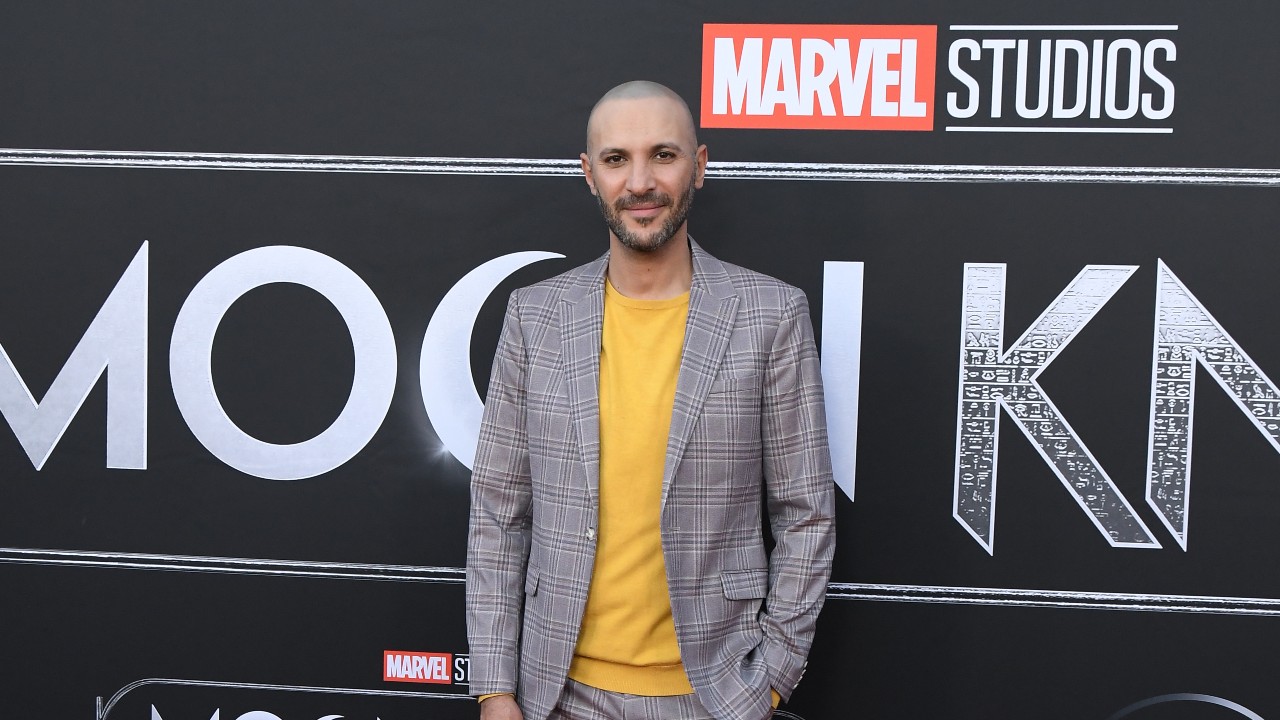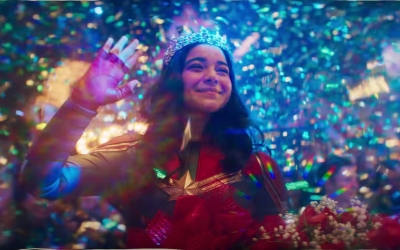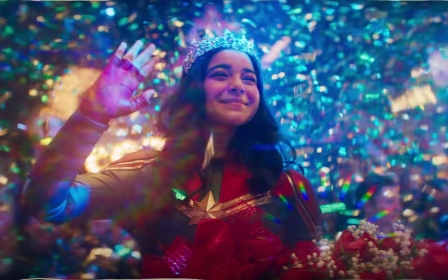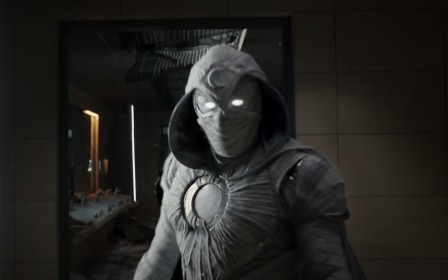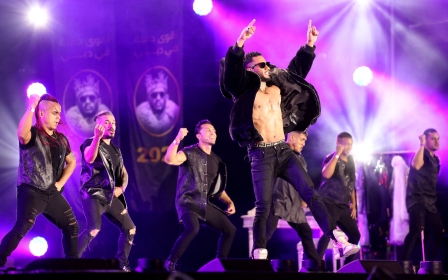Moon Knight: How Marvel's latest show is a lesson in authenticity
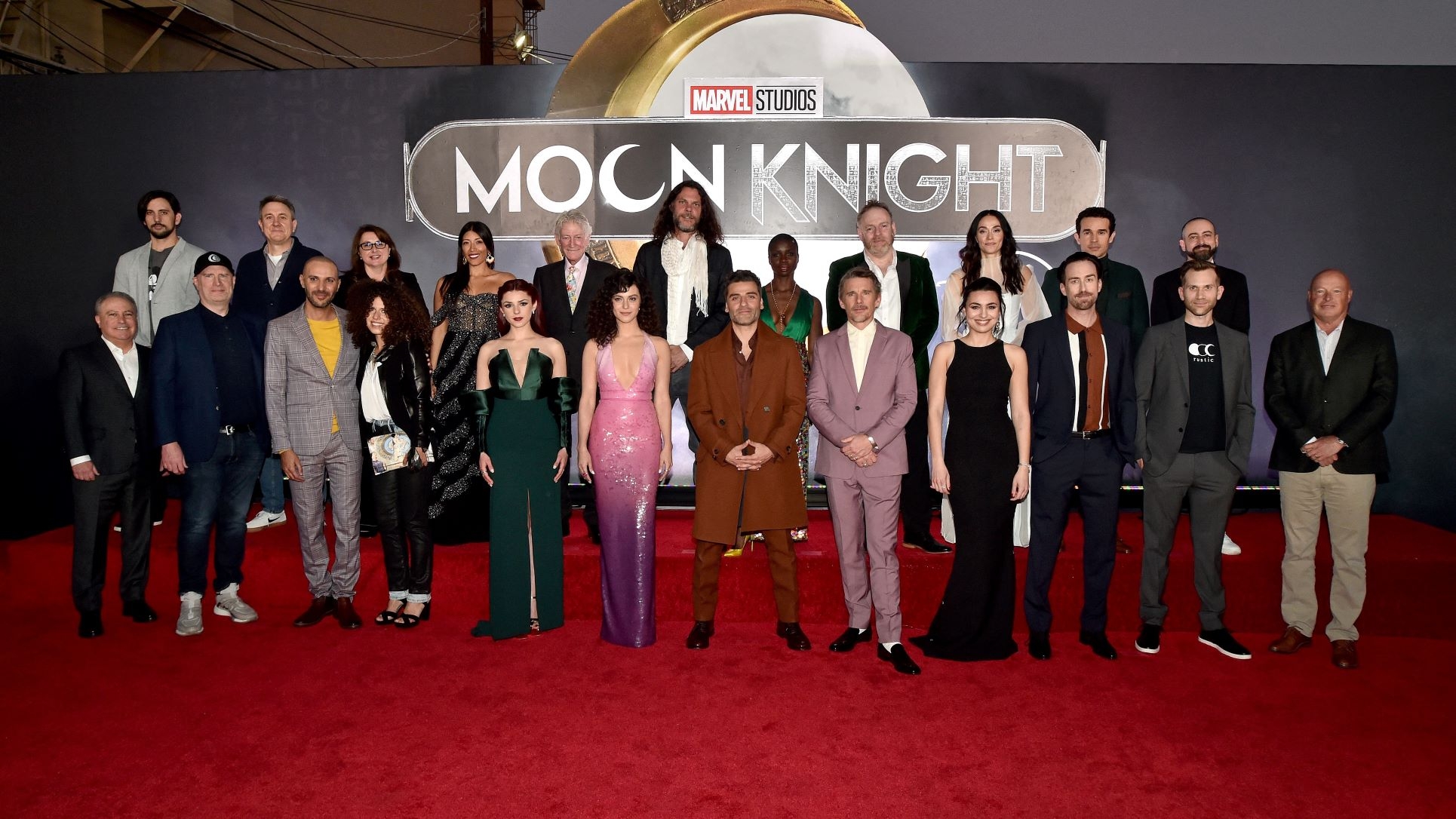
Over the decades, Hollywood has earned justifiable notoriety for the way it represents Middle Eastern characters and settings.
Gunmen with furrowed brows, sepia colour grading, bustling marketplaces and the call to prayer blaring in the background whatever the time of day are all staples of western productions set in the Middle East.
New MEE newsletter: Jerusalem Dispatch
Sign up to get the latest insights and analysis on Israel-Palestine, alongside Turkey Unpacked and other MEE newsletters
For years the Marvel Cinematic Universe has been no exception, with just one example being the vaguely Middle Eastern terrorists featured in the first Iron Man movie.
But to its credit, things are changing inside entertainment's most successful superhero franchise, with its latest offering, Moon Knight, a testament to how far it has come.
Drawing inspiration from the Ancient Egyptian pantheon, the show that has been streaming on Disney+ since 30 March offers little in the way of tired tropes, but instead a lot of good storytelling, rounded characters and culturally accurate details.
It follows a man with dissociative identity disorder who suffers from a series of mysterious blackouts, where he cannot recall whole days of his life. Eventually he learns he is the chosen avatar of the Egyptian god, Khonshu, who has tasked him with stopping a rival deity from returning to Earth.
Moon Knight's Cairo is a realistic reflection of the Arab world's largest metropolis: no filter changes, no exaggerated or inaccurate costume designs and every extra looks just as they would appear on the streets of the city today.
When it comes to casting, Layla El-Faouly, played by Egyptian-Palestinian actress May Calamawy, serves as one of the show's key characters, as protagonist Marc Spector's wife. Hers is a role not limited to playing sidekick to Spector, played by Oscar Isaac, but instead carries an intriguing backstory in itself, which slowly unravels as the series progresses.
And when an episode ends, it is to the sound of Egyptian mahraganat, the genre of working-class music, which developed in some of Alexandria and Cairo's poorest districts, and is currently involved in an existential battle with Egypt's censorious authorities. This is a touch only someone with intimate knowledge of the region could have thought to include.
The Diab factor
Credit for these aspects of Moon Knight's production lie with the show's primary director Mohamed Diab and the team that he has assembled around him.
The Egyptian filmmaker, whose previous directorial credits include Cairo 678 - a movie about sexual harassment in Egypt- and Eshtebak (Clash) - about its failed revolution, has said he was motivated by the impulse to correct Hollywood's past wrongs.
“It was very important for me to portray us as normal human beings,” he said in an interview with IGN, adding: “It’s 20 million people, and we have skyscrapers, and it's a normal place just like this.
“As an Egyptian, seeing us always portrayed in the wrong way, always portrayed with this... we call it orientalism."
One of the tools he has used to address the issue is his reliance on Egyptian talents who brought with them expert knowledge of their own culture. They include editor Ahmed Hafez, composer Hesham Nazih and actress Calamawy.
That team has helped ensure that the Egyptian experience and culture is reflected throughout each layer of the series. Nowhere is this more present than in the musical score, which Nazih was tasked with.
Nazih's score used classical Egyptian music by the likes of Abel Halim Hafiz and Nagat al-Saghir, and incorporated the younger, and more controversial, mahraghanat. The Egyptian Musicians Syndicate called for the ban of the genre in February 2020 - ironically, further cementing its status as the sound of Egyptian discontent.
Diab, along with his team, manage to further evoke the sound of Egyptian resistance, with a remix of Algerian-Lebanese singer Warda al-Jazairia's classic song Batwanes Beek (You're always with me) playing at the start, alongside images of Marvel's other heroes, including Black Panther, Thor and the Incredible Hulk.
"I wanted them (audience) to hear something that sounded Egyptian and not like someone trying to mimic Egyptian music," Nazih said in a recent interview.
He added: "I tried to make the authentic Egyptian elements sit comfortably within the orchestra - brass strings, double wings, big choir. I wanted all of this to sit together with the Egyptian instruments comfortably and naturally."
Propaganda machine
Diab's achievements are all the more impressive given Moon Knight's origins in whitewashing the more unsavoury aspects of US foreign policy.
Introduced by Marvel Comics for the first time in 1975, the character of Marc Spector first joined the US Marines before going on to work for the CIA, where he was tasked with overthrowing foreign governments.
He breaks bad, but only while working as a mercenary and not during his CIA career, participating in a botched job near the southern border of Egypt. Finding himself on the brink of death, Spector is revived by the deity Khonsu in return for his service.
Moon Knight is not unique in this regard and his backstory follows the rule for Marvel superheroes, rather than the exception.
As the Marvel Cinematic Universe has grown into one of the most successful and popular collections of films and shows in the world, some critics have argued that its premise is to preserve US power projection onto the rest of the world, even going as far as to accuse it of promoting propaganda for the US military.
Tony Stark of Iron Man fame, for example, leads a top US defence contractor, and was depicted selling weapons to the US military while it fights across the Middle East. Another Marvel staple, Captain America, is a US super soldier, while Captain Marvel is a US Air Force captain. A number of the Marvel movies have been completed in collaboration with the military.
The CIA aspect of Moon Knight's origin story has been written out in Diab's version, at least for the time being.
Instead the focus has been on his time as a mercenary and then as Moon Knight, as well as his career as a museum gift shop employee under his alternative identity, Steven Grant.
While it is unlikely that Marvel productions or those by other big Hollywood names will cease to be tools of American power projection internationally in the near future, Moon Knight shows there is space for storytelling that factors in perspectives other than those of American producers.
And given its reception among fans and critics, including an 87 percent fresh rating on review aggregator Rotten Tomatoes, the appetite for alternative perspectives clearly also exists among audiences.
This article is available in French on Middle East Eye French edition.
Middle East Eye delivers independent and unrivalled coverage and analysis of the Middle East, North Africa and beyond. To learn more about republishing this content and the associated fees, please fill out this form. More about MEE can be found here.


